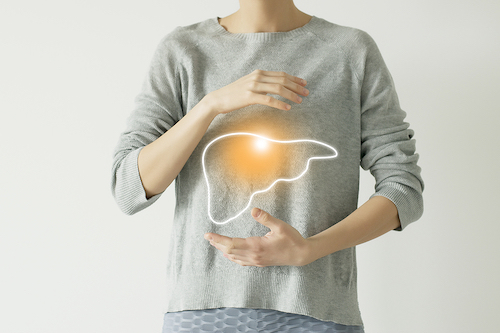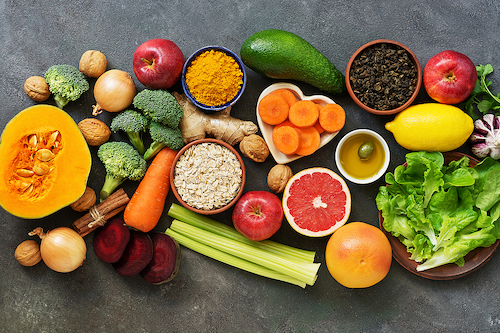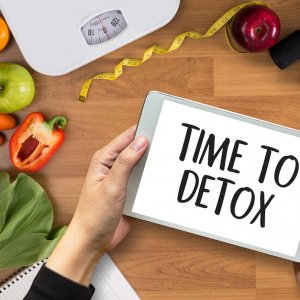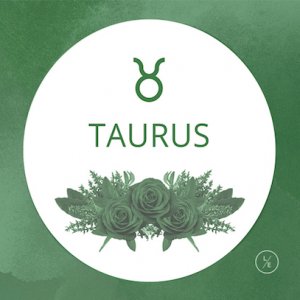Your liver is responsible for over 400 essential functions in your body. It sifts through literally everything that enters your body, so it’s important to make sure it’s operating in tip-top shape. Detoxifying the liver helps reduce toxins, which can improve overall health and often leads to weight loss.
The Role of the Liver

The liver’s primary function is filtering toxic substances to prevent them from passing into your bloodstream. It is your body’s first line of defense against harmful substances. For a more detailed explanation about the liver’s role in detoxification, check out How the Body Detoxifies.
Your liver is also responsible for converting nutrients in your diet into substances your body can use, as well as supplying cells what they need to function and reproduce. In essence, everything we eat or drink passes through the liver before it can be used by our cells.
Additionally, the liver plays a role in regulating blood sugar and breaking down damaged blood cells. Because of these important functions, a sluggish or diseased liver can take its toll on your overall health.
Signs of a Sluggish Liver
An occasional liver cleanse or detox is a good idea to keep it working smoothly. Certain symptoms can alert you to a sluggish liver:

- Sluggishness & fatigue
- Weight gain
- Dull headaches that improve with rest
- Irregular digestion
- Abdominal pain
- Unusual negative emotions, anxiety, or depression
- Brain Fog/Lethargy/Feeling Drained
- Acne, especially cystic acne
- Hormonal imbalances
- Bad breath
- Food allergies/sensitivities
- Gas/bloating
- Feeling sick after eating fatty foods
- Abnormal sweating
If you experience any of these symptoms —especially if you have many of them— you may want to consider detoxifying the liver. Many of the changes below are lifestyle changes that you may or may not choose to adopt long-term. But even if you just detox for a week, your liver will thank you. Decreasing the toxic load for a short period of time can perk up a sluggish liver.
Tips for Detoxifying the Liver
5 Things to Avoid
Booze

Your liver processes alcohol as a toxin. Inside the liver, enzymes break alcohol down into substances that are easier to metabolize. First, the enzyme alcohol dehydrogenase (ADH) converts alcohol into acetaldehyde. Next, aldehyde dehydrogenase (ALDH) enzymes convert the acetaldehyde into acetate. Acetate is broken into carbon and dioxide, which can then be expelled by the body.
Although it sounds like a couple simple reactions, this process takes its toll on the liver. In fact, alcohol abuse destroys liver cells and can result in liver disease. This may include fatty liver disease, cirrhosis (scarring of the liver), hepatitis and even liver cancer.
Keep in mind that this includes all forms of alcohol: liquor, beer, wine, spirits, etc. If you drink alcohol, consider giving your liver a break by forgoing the booze for a period of time. When you do drink, make sure you stay within your limits and avoid getting drunk.
Refined Sugars
Before sugar becomes an energy source to the body, it must be converted to glucose by the liver. When fructose enters the liver, it kicks off a series of complex chemical transformations. In a process called lipogenesis, the liver uses fructose to create fat. Give the liver enough fructose, and tiny fat droplets begin to accumulate in liver cells. This buildup is called nonalcoholic fatty liver disease (NAFLD), and it looks just like what happens in the livers of people who drink too much alcohol.
So in essence, in the long run, sugar can damage your liver in very similar ways as alcohol. This is one reason why it’s so important to limit sugar intake and to give your body times to detox from it completely.
Fatty Foods

In addition to sugar, your liver plays an important role in the metabolism of fats. A high-fat diet can cause your liver to overproduce glucose and contribute to NAFLD. A small study evaluated glucose levels in men after a large fat intake. This “fat loading” caused subjects’ livers to produce 70% more glucose. Fat loading also caused liver cells to work harder, which places more stress on the liver and contributes to liver disease.
Dairy products, like cheese, milk, butter, and cream, are high in trans fats and sodium. The added sodium exerts extra pressure in your liver by causing inflammation and excess fluid buildup.
Fried foods and other sources of saturated and trans fats put added stress on your liver. Inflammatory oils include canola, corn, soybean, vegetable oil, cottonseed, safflower, sunflower.
Processed Foods
The more junk we put into our bodies, the more demand we place on our liver. During a cleanse, eliminate processed foods with chemical additives, pesticides, and artificial ingredients. Look for organic, non-GMO, whole foods instead. The more natural, plant-based foods you eat, the better.
Meat
Certain meats, including pork, beef, and turkey, are high in saturated fats and sodium. Animal fats are particularly hard on the liver. A plant-based diet is best, but if you must eat meat, select small portions of lean meats and fish. If you choose to indulge in poultry occasionally, go for a skinless option.
5 Things to Consume
Water. . .Lots of it
Water is essential for the liver to flush toxins from your body. The more toxins you consume, the more water your body needs. To avoid taking in more toxins, drink pure, filtered water. Tap water may contain chlorine, fluoride, and other chemicals that can do your body more harm than good.

For an added boost, add fresh lemon juice to your drinking water. Lemons contain vitamin C, flavonoids, carotenoids and other bioactive compounds that fight oxidative damage to protect the liver. A recent study found that lemon juice reduced alcohol-induced liver injury in mice.
Some experts suggest drinking lemon water just before going to bed at night to support the liver as it detoxifies in your sleep.
Specific Fruits & Vegetables
The old adage, “an apple a day keeps the doctor away” is true when it comes to liver health. This is because apple polyphenol extract has hepatoprotective effects on liver oxidative stress. In addition to apples, many fruits and vegetables contain polyphenols that exhibit antioxidant activity, reduce inflammation, protect the liver, and encourage detoxification. Some of the best ones include:

- Artichoke
- Beets
- Cruciferous vegetables (broccoli, cauliflower, cabbage, bok choy, etc.)
- Carrots
- Greens (the darker the better)
- Sweet potato
- Radish
- Avocado
- Banana
- Cherry
- Fig
- Citrus fruits
- Papaya
- Pomegranate
- Watermelon
Also, while detoxifying the liver it may be best to avoid plants in the nightshade family, as many of them cause hepatic toxicity. Common nightshades include eggplant, peppers (including spices made from peppers), potatoes, and tomatoes.
Turmeric
Curcumin, the primary compound in turmeric, provides so many healing properties. This polyphenol has anti-inflammatory, antioxidant and anti-fibrogenic properties to protect the liver. In addition, studies show that it increases detoxifying enzymes in the liver, while healing and repairing hepatic damage. Curcumin comes in capsules, or you can add turmeric powder to many foods.

Milk Thistle
According to research, the active ingredient in milk thistle, silymarin, can help the body regenerate liver tissue, decrease inflammation, eliminate toxins in the liver and protect the liver from oxidative damage by free radicals. Milk thistle extract is readily available in capsules.
Healthy Fats
Omega-3 fatty acids provide essential nutrients our bodies don’t produce. Therefore, they must be included in the diet to help protect against cardiovascular disease, stroke, diabetes, and liver disease. Omega-3s have been shown to reduce lipid accumulation and liver enzyme levels, improve insulin sensitivity, and have anti-inflammatory effects. Conversely, depletion of omega-3 or increased omega-6:omega-3 (pro-inflammatory: anti-inflammatory) ratios contribute to the development of NAFLD.

Good sources of omega-3 fatty acids include:
- Fatty fish, such as salmon, mackerel herring, trout, and tuna
- Nuts and seeds, especially walnuts, flaxseed, chia seeds, and pecans
- Avocado
- Olive oil
For a few more ideas to help improve liver health, check out Three Tips for a Healthy Liver.












